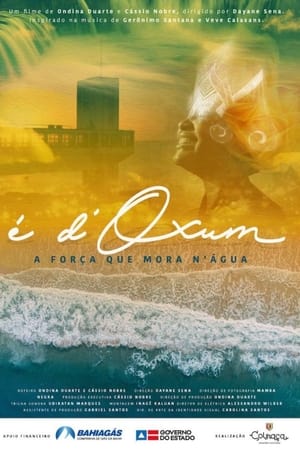
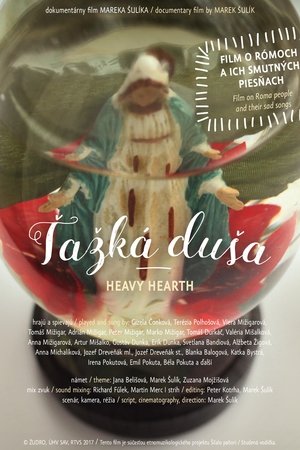
Heavy Heart(2017)
Documentary film Heavy Heart arose as a part of ethnomusicological research Silalo panori / Cold water (2014 – 2017) of ancient Roma songs. These songs are usually connected with memories and experiences of their interprets. Documentary in a mosaic-like way traces the way of the original Roma music transport to the next generation or also how it ceases to exist under the influence of social changes.

Movie: Heavy Heart

Ťažká duša
HomePage
Overview
Documentary film Heavy Heart arose as a part of ethnomusicological research Silalo panori / Cold water (2014 – 2017) of ancient Roma songs. These songs are usually connected with memories and experiences of their interprets. Documentary in a mosaic-like way traces the way of the original Roma music transport to the next generation or also how it ceases to exist under the influence of social changes.
Release Date
2017-10-05
Average
0
Rating:
0.0 startsTagline
Genres
Languages:
SlovenčinaKeywords
Similar Movies
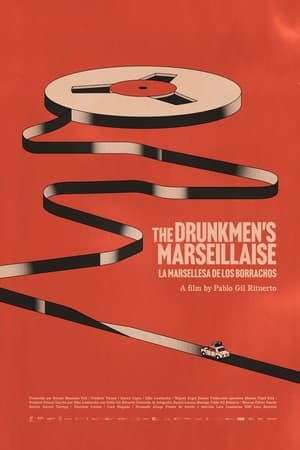 8.0
8.0The Drunkmen’s Marseillaise(es)
In the summer of 1961, a group of young Italian anthropologists made a clandestine journey through Spain, in order to record popular songs that supported anti-Franco resistance. As a result of their work, they were prosecuted and their recordings were censored. Sixty years later, and guided by Emilio Jona, aged 92, the last living member of that group of travellers, we recover the unpublished recordings and reconstruct the journey, today, across an emotional and political landscape, regaining historical memories through these songs, as relevant today as they were then.
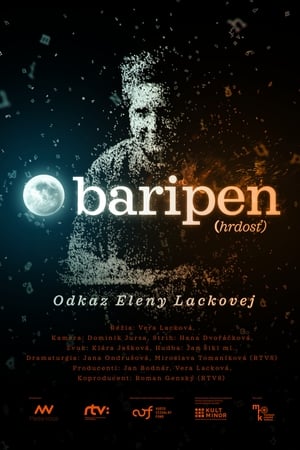 0.0
0.0O Baripen(sk)
The TV biopic maps the fate of Roma writer Elena Lackova in an intimately personal way. As viewers, thanks to the author's authentic voiceover and preserved archive footage, we delve into her memories of the Holocaust and the communist dictatorship in the context of the play Burning Gypsy Camp. We uncover the circumstances of growing up in a gypsy settlement, her first literary achievements, and her struggle to combine her personal and professional life. We also get to know her life story through her great-granddaughter and actress Alžbeta Ferencova, known as Zea or the serial Iveta (dir. Jan Hřebejk, 2022). The parallel between the life of the writer and that of her great-granddaughter, who also embarked on an artistic career and broke down stereotypes about the role of Roma women in society, creates a timely and transferable story. A crucial motif of the poetic film is also the unprecedented emancipation of the writer for the time.
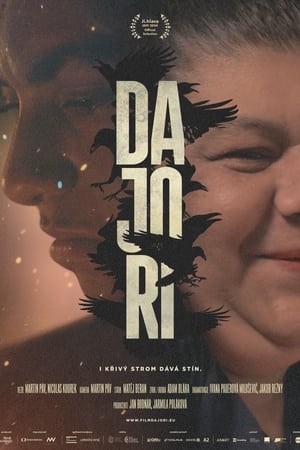 0.0
0.0Dajori(cs)
The protagonist of Dajori (mother in Romani) is forty-five-year-old Marie Hučková, who lives with her husband in Varnsdorf. After her younger sister Iveta ends up on the streets with her nine children, she decides to take her own fate and theirs firmly into her own hands and attempts to break out of the vicious circle of poverty that characterises their hometown. This sensitive film, which captures three years of a newly formed family's life together, follows the small joys and daily challenges of caring for others and asks whether a mother's love can overcome the dysfunctional system in which socially excluded localities find themselves.
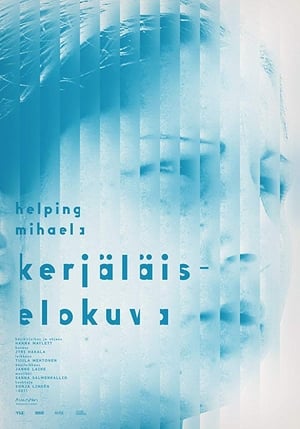 6.0
6.0Helping Mihaela(fi)
A Roma beggar on his knees raises many extreme emotions: guilt, rage, sympathy and frustration. Most people just walk on by, but there is always someone willing to help. In this film, the director follows the confrontations between the Roma beggars from Romania and Finnish people, and is forced to question, over and over again, her own ideas about helping.
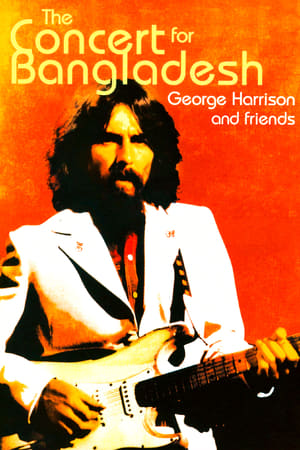 7.9
7.9The Concert for Bangladesh(en)
A film about the first benefit rock concert when major musicians performed to raise relief funds for the poor of Bangladesh. The Concert for Bangladesh was a pair of benefit concerts organised by former Beatles guitarist George Harrison and Indian sitar player Ravi Shankar. The shows were held at 2:30 and 8:00 pm on Sunday, 1 August 1971, at Madison Square Garden in New York City, to raise international awareness of, and fund relief for refugees from East Pakistan, following the Bangladesh Liberation War-related genocide.
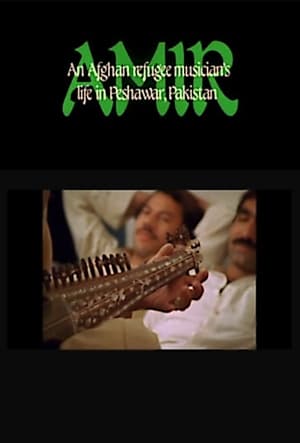 0.0
0.0Amir: An Afghan Refugee Musician's Life in Peshawar, Pakistan(en)
Amir, shot during the height of the Afghan civil war in the 1980s, investigates and portrays the life of Afghan refugees living in and around the city of Peshawar in northern Pakistan through the experiences of the musician Amir. The aspirations of Afghan refugees are expressed through their political songs dealing with the civil war in Afghanistan, with exile, with Afghan nationalism and with the Islamic revolution. In highly charged and tragic circumstances, music can be used in very direct ways, both to promote solidarity and as an agent of catharsis.
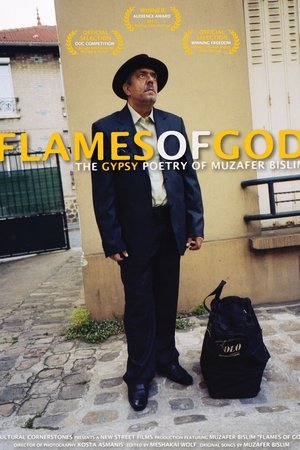 0.0
0.0Flames of God(en)
Muzafer Bislim comes up with some of his most insightful songs while sitting on the floor, recording lyrics into a cassette recorder bought at a flea market. A poet and songwriter who collaborates with the biggest names in Romani music, the 54-year old lives a life of modest means with his family in Shutka, Macedonia. Stored in the corner of his one-room house is a tottering, ceiling-high stack of handwritten, 25,000-word, multi-dialect dictionary of the oldest and most obscure words in the Romani language, which he has painstakingly collected over 35 years. When he's invited to the International Biennial of Poets held in Paris, he sees the trip as an opportunity to have his dictionary published. A testament to the endurance of a people who have been scattered across Europe, the dictionary is not only a work of art but also a rare link to a divided past.
 6.8
6.8Acasă, My Home(ro)
In the wilderness of the Bucharest Delta, nine children and their parents lived in perfect harmony with nature for 20 years – until they are chased out and forced to adapt to life in the big city.
Jermaine Jackson : the Jackson Musical(en)
YOU ARE NOT ALONE, the Musical was performed in Paris (in English) by Jermaine Jackson. During this evening of music and stories, Jermaine Jackson told the whole Jackson story from their native house in Gary, Indiana, to Motown where they became the Jackson Five and from Michael's Thriller to his tragic death. You'll learn everything you need to know about the greatest family in the entertainment industry.
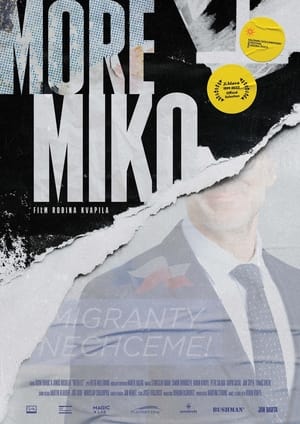 2.0
2.0Citizen Miko(cs)
Miko is a truck driver, his father is Romani, and above all he is a man who wanted to help those in need. When the Czech government was looking for reasons not to take in a few dozen children from Greek refugee camps after the chemical attacks on Syrian civilians in 2018, Miko took justice into his own hands and, together with the Czechs Helping initiative, prepared facilities for child refugees. However, government officials gave priority to political interests. Will parliamentary elections and a change of ministries save the situation? An unflattering but accurately portrayal of the Czech Republic as a country that will only offer a helping hand when it is worthwhile.
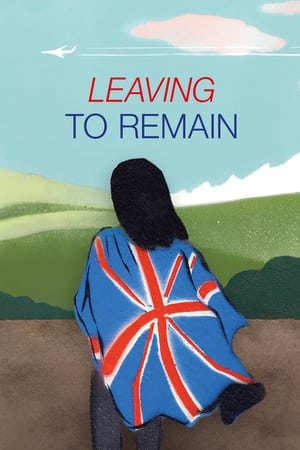 0.0
0.0Leaving to Remain(sk)
With the UK’s hardening immigration policy in the background, director Mira Erdevički follows the lives of three Roma: Petr Torák, Denisa Gannon and Ondrej Oláh. Settled in the UK over 20 years ago, the trio still feel attached to their native Slovakia and the Czech Republic. As the country goes into lockdown, they film their lives throughout the Covid pandemic and the aftermath of Brexit.
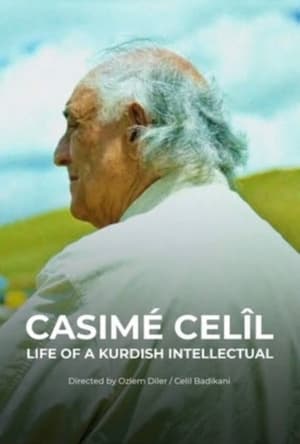 10.0
10.0Jiyana Rewsenbireki Kurd: Casimê Celîl(ku)
Casimê Celîl was born into a Yezidi Kurdish family in 1908, in a village called Kızılkule, located in Digor, Kars. The village and family life, which he longed to remember throughout his life, ends with the massacre they endured in 1918. During his long road to Erivan, Armenia, he lost all his family members. Left all alone, Casim was placed into an orphanage and was forced to change his name. To remember who he was and where he came from, every morning he repeated the mantra “Navê min Casim e, Ez kurê Celîlim, Ez ji gundê Qizilquleyê Dîgorê me, Ez Kurdim, Kurdê Êzîdî me”, which translates to: “My name is Casim, I am the son of Celîl, I come from the village of Kızılkule in Digor, I am a Kurd, and I am Yezidi”. He clings to every piece of his culture he can find, reads, and saves whatever Kurdish literature or art he comes across. As the year’s pass, Casim finds himself with an impressive collection of Kurdish culture and history.
Carmen(fi)
A documentary about a young Finnish Romany Carmen, 11, who lives with her grandmother and aunt in the suburb of a small town in Northern Finland.
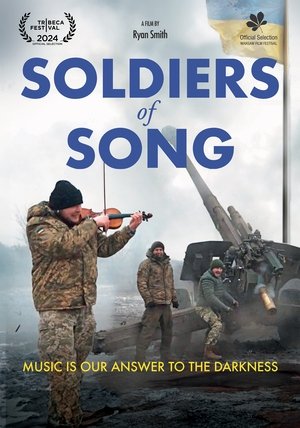 9.0
9.0Soldiers of Song(en)
Ukrainian musicians of all genres, from metal to opera, transform their passion for music into devotion to their country in this moving documentary. Beginning on the very first day of the Russian invasion, Soldiers of Song documents how the lives of its cast of Ukrainian musicians have irrevocably changed and how they use their musical talents to support themselves and their communities. Using shocking footage from the frontlines, this film reminds us not only of the ongoing tragedies that continue to happen during this war, but also of the resilience of Ukraine and its cultural forces. Here music functions not only to lift the spirits of the soldiers, but also as a cultural export to raise awareness of the war, a tool for raising humanitarian and military funds, and a valuable cultural artifact for everyday Ukrainians to rally around and protect. The musician’s commitment to their craft reminds us of the real power art has and the impact of beauty under catastrophic circumstances.
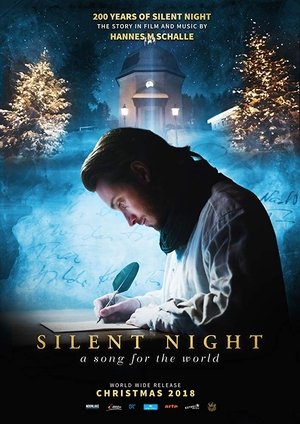 5.5
5.5Silent Night: A Song for the World(de)
This documentary tells the story of the creation and cultural impact of the world's most famous Christmas carol, composed in 1818 in Salzburg, Austria, and since then translated into about 140 languages.
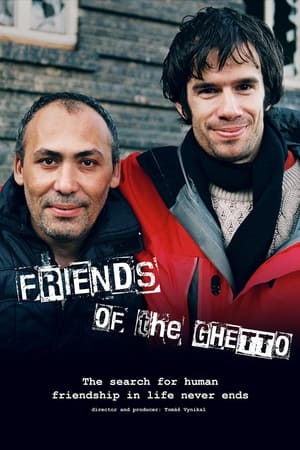 0.0
0.0Friends of the Ghetto(cs)
The young director Tomas Vynikal arrives at the Roma ghetto in search of humanity. With an authentic approach, he finds true friendship, but also human corruption. Everything is kept in the dark when the city of Prerov sells the ghetto together with its inhabitants to a private company for the purpose of new housing construction. This company will only go so far to demolish part of the houses and end up insolvent. The work is also a picture of current social problems in the Czech Republic, where human dwellings are meaninglessly devastated. These inhabitants receive new rental flats from the state, thus another ghetto is being created and society is moving in a catch 22 circle. The film contains time spent from September 2010 to September 2020.
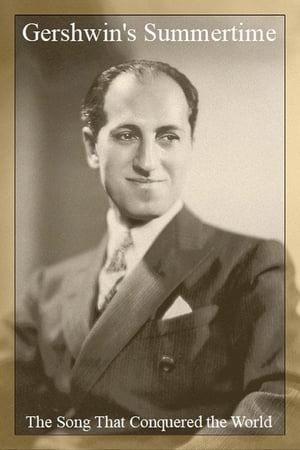 1.0
1.0Gershwin's Summertime: The Song That Conquered the World(en)
The song "Summertime" was written by George Gershwin for the 1935 opera Porgy and Bess. The lyrics are by DuBose Heyward and although not thought to be directly involved, Ira Gershwin gets an official credit. The song soon developed a life of it's own beyond the original opera and has been recorded and adapted into many different styles of music from jazz to opera, rock to reggae, soul to samba. It has been recorded and performed in many different languages around the world and remains one of the most famous and best loved songs ever written. This documentary looks at its history, how it came to be created, and its subsequent history as it traveled through time and around the world. "Summertime" is the most covered song on the planet. At least 25,000 versions of it exist.
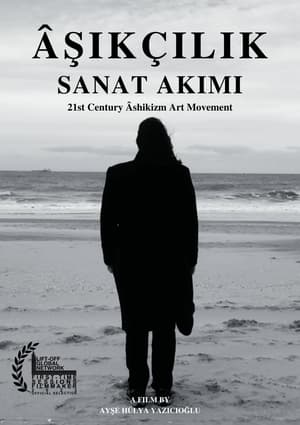 0.0
0.021st Century Âshikizm Art Movement(en)
The sound of centuries-old Adhan in Turkey, the sound of centuries-old church bells and the polyphonic music of Europe echo in our memory. Our traditions and our future determine our present. In the present tense, the sounds of the war's sirens are mixed with the sound of Adhan and church bells. How can people hear themselves? How can humans exist?
 7.0
7.0The Song of the Earth(en)
Is there a connection between animal sounds and the music that humans create? Using a surprising and wide variety of evidence from the animal kingdom -- including the humpback whale, the lyre bird, the siamang gibbon and the great reed warbler -- Sir David Attenborough seeks to prove that the origions of music lie in territory, emotion and sex.
